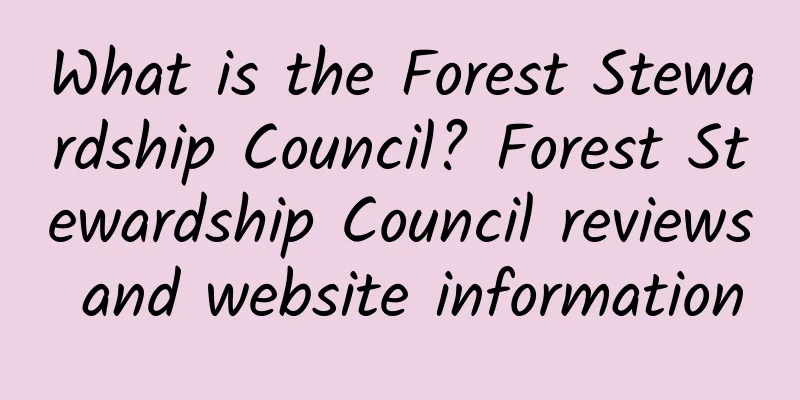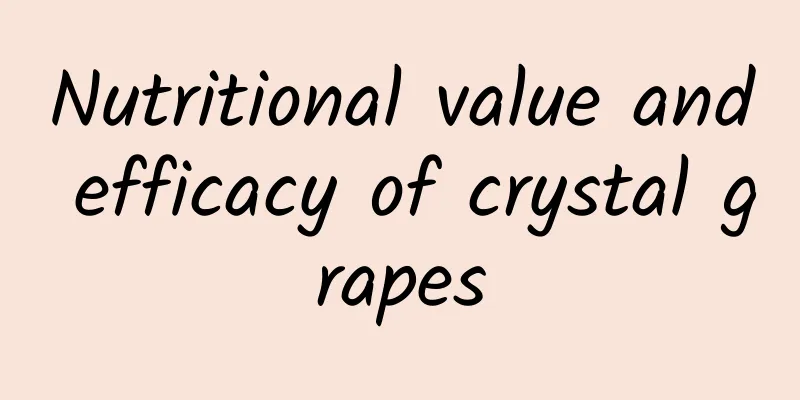What is the Forest Stewardship Council? Forest Stewardship Council reviews and website information

|
What is the Forest Stewardship Council website? The Forest Stewardship Council (FSC) is a non-governmental, non-profit environmental protection organization established in 1993. It is committed to preventing the destruction of forests, developing standards for good forest management and the production and marketing supervision chain standards for wood processing, and issuing FSC certification. Website: www.fsc.org The Forest Stewardship Council (FSC) is a non-governmental, non-profit environmental protection organization founded in 1993. It is committed to preventing the destruction of forests, developing standards for good forest management and the chain of custody for wood processing, and issuing FSC certification. The establishment of FSC stems from global concerns about the decreasing forest resources and environmental damage. It aims to ensure the long-term health of forest resources and ecological balance by developing and implementing sustainable forest management standards. The mission of FSC is to promote sustainable management of forests around the world and ensure that forest products come from responsibly managed forests through a certification system. FSC certification not only focuses on environmental protection, but also emphasizes social and economic sustainability. This means that forest management units that obtain FSC certification must comply with strict environmental standards, while respecting the rights of local communities and workers and ensuring economic feasibility. The FSC certification system consists of two main parts: Forest Management Certification (FM) and Chain of Custody Certification (CoC). Forest Management Certification is a certification for forest management units to ensure that their management practices meet FSC standards. Chain of Custody Certification is a certification for the processing, trade and sales of wood and wood products to ensure that FSC-certified raw materials can be traced throughout the supply chain from forests to consumers. FSC standards cover many aspects, including the protection of forest ecosystems, maintenance of biodiversity, protection of water resources, soil health, the rights of forest workers, the interests of local communities, etc. FSC also emphasizes transparency and participation, and encourages all stakeholders to participate in the decision-making process of forest management. The FSC certification process usually includes the following steps: First, the forest management unit or enterprise needs to apply to the FSC-approved certification body. Then, the certification body will conduct a preliminary assessment of the applicant to determine whether it meets the basic requirements of FSC. If it meets the requirements, the certification body will conduct an on-site audit to assess whether the specific practices of forest management or the production and marketing supervision chain meet the FSC standards. If the audit is passed, the applicant will obtain FSC certification and can use the FSC label on its products. The FSC label is an important symbol for consumers to identify sustainable forest products. Products with the FSC label mean that they come from responsibly managed forests, and consumers can buy them with confidence, thus supporting sustainable forest management practices. The FSC label is widely recognized around the world, and many internationally renowned companies and brands choose to use FSC-certified raw materials to demonstrate their support for environmental protection and social responsibility. The influence of FSC is not limited to the field of forest management. It also promotes the sustainable development of the global supply chain. Through FSC certification, companies can demonstrate their environmental and social responsibilities, enhance their brand image, and win the trust of consumers. At the same time, FSC certification also provides companies with opportunities to enter the international market. Government procurement and large retailers in many countries and regions require the use of FSC certified products. FSC also actively participates in international environmental protection affairs, cooperates with other international organizations, governments and non-governmental organizations to promote the global forest protection agenda. FSC regularly publishes global forest status reports, providing the latest forest management data and trend analysis, and providing scientific basis for policy makers and the public. FSC's success is inseparable from the support and participation of all parties around the world. FSC's members include environmental organizations, social groups, enterprises, research institutions and individuals, who work together to promote the realization of FSC's mission and goals. FSC has also established regional offices and branches to better serve the needs and challenges of different regions. The FSC certification system is also constantly developing and improving. As global environmental and social issues change, FSC continues to update its standards to meet new challenges and demands. For example, in recent years, FSC has increased its attention to issues such as climate change, forest fires, and illegal logging, and has added corresponding requirements to its standards. The FSC certification process is strict and transparent, ensuring the credibility and authority of the certification. FSC-approved certification bodies are strictly evaluated and approved, and have professional capabilities and experience. FSC also conducts regular supervision and evaluation of certification bodies to ensure that their certification process meets FSC requirements. FSC certification not only has a positive impact on forest management units and enterprises, but also has important significance for consumers and the public. By choosing FSC certified products, consumers can support sustainable forest management, reduce negative impacts on the environment, and promote sustainable development of society. The FSC certification system has been widely used and recognized around the world. At present, the area of FSC-certified forests has exceeded 200 million hectares, distributed in more than 80 countries and regions. FSC-certified products are diverse, including wood, paper, furniture, building materials, textiles, etc., covering all aspects of daily life. The FSC certification system has also been supported and recognized by many international organizations and governments. For example, the United Nations Environment Program (UNEP) and the International Union for Conservation of Nature (IUCN) both recommend the use of FSC-certified products to support sustainable management of global forests. Governments in many countries and regions have also formulated relevant policies to encourage and support the promotion and application of FSC certification. FSC faces many opportunities and challenges in its future development. As global attention to environmental protection and sustainable development continues to increase, FSC's certification system will continue to play an important role. However, FSC also needs to respond to new challenges, such as climate change, forest degradation, illegal logging, etc., and continue to improve its standards and methods to better serve the protection and sustainable management of global forests. The FSC certification system not only has a positive impact on forest management, but also has important significance for the sustainable development of the global supply chain. Through FSC certification, companies can demonstrate their environmental and social responsibilities, enhance their brand image, and win the trust of consumers. At the same time, FSC certification also provides companies with opportunities to enter the international market. Government procurement and large retailers in many countries and regions require the use of FSC certified products. FSC also actively participates in international environmental protection affairs, cooperates with other international organizations, governments and non-governmental organizations to promote the global forest protection agenda. FSC regularly publishes global forest status reports, providing the latest forest management data and trend analysis, and providing scientific basis for policy makers and the public. FSC's success is inseparable from the support and participation of all parties around the world. FSC's members include environmental organizations, social groups, enterprises, research institutions and individuals, who work together to promote the realization of FSC's mission and goals. FSC has also established regional offices and branches to better serve the needs and challenges of different regions. The FSC certification system is also constantly developing and improving. As global environmental and social issues change, FSC continues to update its standards to meet new challenges and demands. For example, in recent years, FSC has increased its attention to issues such as climate change, forest fires, and illegal logging, and has added corresponding requirements to its standards. The FSC certification process is strict and transparent, ensuring the credibility and authority of the certification. FSC-approved certification bodies are strictly evaluated and approved, and have professional capabilities and experience. FSC also conducts regular supervision and evaluation of certification bodies to ensure that their certification process meets FSC requirements. FSC certification not only has a positive impact on forest management units and enterprises, but also has important significance for consumers and the public. By choosing FSC certified products, consumers can support sustainable forest management, reduce negative impacts on the environment, and promote sustainable development of society. The FSC certification system has been widely used and recognized around the world. At present, the area of FSC-certified forests has exceeded 200 million hectares, distributed in more than 80 countries and regions. FSC-certified products are diverse, including wood, paper, furniture, building materials, textiles, etc., covering all aspects of daily life. The FSC certification system has also been supported and recognized by many international organizations and governments. For example, the United Nations Environment Program (UNEP) and the International Union for Conservation of Nature (IUCN) both recommend the use of FSC-certified products to support sustainable management of global forests. Governments in many countries and regions have also formulated relevant policies to encourage and support the promotion and application of FSC certification. FSC faces many opportunities and challenges in its future development. As global attention to environmental protection and sustainable development continues to increase, FSC's certification system will continue to play an important role. However, FSC also needs to respond to new challenges, such as climate change, forest degradation, illegal logging, etc., and continue to improve its standards and methods to better serve the protection and sustainable management of global forests. The FSC certification system not only has a positive impact on forest management, but also has important significance for the sustainable development of the global supply chain. Through FSC certification, companies can demonstrate their environmental and social responsibilities, enhance their brand image, and win the trust of consumers. At the same time, FSC certification also provides companies with opportunities to enter the international market. Government procurement and large retailers in many countries and regions require the use of FSC certified products. FSC also actively participates in international environmental protection affairs, cooperates with other international organizations, governments and non-governmental organizations to promote the global forest protection agenda. FSC regularly publishes global forest status reports, providing the latest forest management data and trend analysis, and providing scientific basis for policy makers and the public. FSC's success is inseparable from the support and participation of all parties around the world. FSC's members include environmental organizations, social groups, enterprises, research institutions and individuals, who work together to promote the realization of FSC's mission and goals. FSC has also established regional offices and branches to better serve the needs and challenges of different regions. The FSC certification system is also constantly developing and improving. As global environmental and social issues change, FSC continues to update its standards to meet new challenges and demands. For example, in recent years, FSC has increased its attention to issues such as climate change, forest fires, and illegal logging, and has added corresponding requirements to its standards. The FSC certification process is strict and transparent, ensuring the credibility and authority of the certification. FSC-approved certification bodies are strictly evaluated and approved, and have professional capabilities and experience. FSC also conducts regular supervision and evaluation of certification bodies to ensure that their certification process meets FSC requirements. FSC certification not only has a positive impact on forest management units and enterprises, but also has important significance for consumers and the public. By choosing FSC certified products, consumers can support sustainable forest management, reduce negative impacts on the environment, and promote sustainable development of society. The FSC certification system has been widely used and recognized around the world. At present, the area of FSC-certified forests has exceeded 200 million hectares, distributed in more than 80 countries and regions. FSC-certified products are diverse, including wood, paper, furniture, building materials, textiles, etc., covering all aspects of daily life. The FSC certification system has also been supported and recognized by many international organizations and governments. For example, the United Nations Environment Program (UNEP) and the International Union for Conservation of Nature (IUCN) both recommend the use of FSC-certified products to support sustainable management of global forests. Governments in many countries and regions have also formulated relevant policies to encourage and support the promotion and application of FSC certification. FSC faces many opportunities and challenges in its future development. As global attention to environmental protection and sustainable development continues to increase, FSC's certification system will continue to play an important role. However, FSC also needs to respond to new challenges, such as climate change, forest degradation, illegal logging, etc., and continue to improve its standards and methods to better serve the protection and sustainable management of global forests. In summary, as a non-governmental, non-profit environmental protection organization, the Forest Stewardship Council (FSC) is committed to preventing the destruction of forests and promoting sustainable management of global forests by developing and implementing sustainable forest management standards and issuing FSC certification. The FSC certification system includes forest management certification and production and marketing chain of custody certification, covering multiple aspects such as environmental protection, social responsibility and economic sustainability. FSC-certified products are widely recognized worldwide, and many internationally renowned companies and brands choose to use FSC-certified raw materials to demonstrate their support for environmental protection and social responsibility. The success of FSC is inseparable from the support and participation of all parties around the world, and its certification system is also constantly developing and improving to meet new challenges and needs. FSC faces many opportunities and challenges in its future development, but its role in promoting global forest protection and sustainable development will continue to play an important role. |
>>: How is Snow Brand Milk? Reviews and website information of Snow Brand Milk
Recommend
The efficacy and cultivation of firecracker flower
The plant we are about to introduce is a plant wi...
The advantages and disadvantages of scraping and the precautions of scraping
Gua Sha is a traditional health-preserving method...
How to make delicious pickled radish strips
Usually, you can often see some pickled radish st...
What is Carlson Hotels Worldwide like? Carlson Hotels Worldwide reviews and website information
What is the website of Carlson Hospitality Worldwi...
The efficacy of Jiao Sanxian porridge
I believe that friends may be unfamiliar with the ...
What are the benefits of eating tofu? What are the benefits and effects of eating tofu?
Tofu is a food that many people like to eat all y...
How many days does bottled water last after opening?
Bottled water is now the mainstream of drinking w...
The advantages and disadvantages of soaking dates and lemons in water
Soaking dates and lemons in water is a favorite h...
How are Austrian travel agencies? Reviews and website information of Austrian travel agencies
What is the website of Austria Tours? Austria Tour...
What is 2K Games like? 2K Games reviews and website information
What is 2K Games? 2K Games is an American game pro...
Nutritional value of white radish
Radish is the most common vegetable. We love to e...
How to make scallion chicken porridge
The method of making scallion chicken porridge is...
Ingredients and steps for lotus seed, lily and red bean porridge
I recommend eating lotus seed, lily and red bean ...
Nutritional value and efficacy of prunes Benefits of eating prunes
Prune is a special fruit native to California, US...
Fried broad beans steps
Fried broad beans are delicious. My son likes the...









